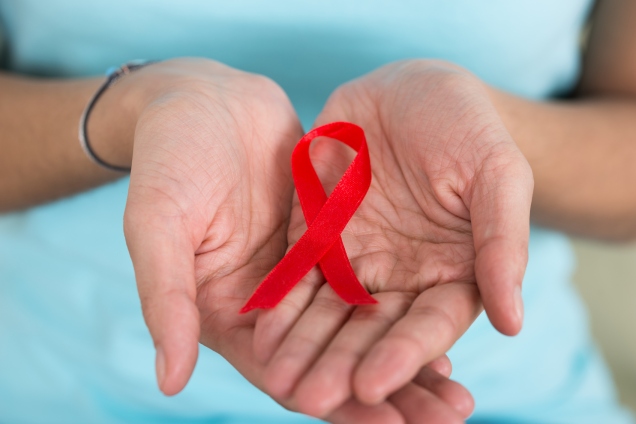HIV Awareness: Progress and Challenges
- Category: Living Well
- Posted On:
Authors: Lauren Richey, MD, MPH, FIDSA, and Sadie Beckett, MPH
Scientists and researchers have shown through multiple studies that when people living with HIV take their medicines as prescribed and as a result have no detectable virus in their blood on blood tests that they cannot transmit HIV to their sexual partners.
This knowledge allows people living with HIV to lead full, unrestricted lives that allow them to safely have sex without condoms. This also allows both men and women living with HIV to have children without the concern of transmitting the infection to their children.

HIV still remains an important health issue in 2018. While HIV is easy to test for with a simple blood test, many people do not routinely get tested, either because they do not access healthcare or because their provider does not offer them testing.
In 2016, according to the Louisiana Office of Public Health, Louisiana had the third-highest HIV diagnosis rate in the United States, with the New Orleans region being the region in Louisiana with the highest diagnosis rate.

Diagnosis is important because once diagnosed, people will know whether or not they have HIV. If they learn that they are living with HIV they can access life-saving medications that improve their health and help them to achieve viral suppression. When they achieve viral suppression, the virus is then undetectable in their blood and therefore can no longer be transmitted to partners
University Medical Center New Orleans offers testing in the Infectious Disease Center (Clinic building, Zone C). There is also routine HIV testing in our Emergency Department. So if a medical condition or any risk of exposure to HIV brings you to the ED, you can get tested.
To find other testing centers near you, you can enter your zip code into: gettested.cdc.gov. Other places include your primary medical doctor, OB/GYN, or at a community testing event.
HIV and Stigma
One of the greatest challenges for many people living with aids is still the stigma that goes along with the disease.
The Merriam-Webster definition of stigma is “an identifying mark or characteristic.” In the case of HIV and stigma, HIV is the identifying characteristic, and it reduces a person from being whole and usual to tainted and discounted. The effects of HIV stigma on people living with HIV can be deadly.
People living with HIV are less likely to attend their medical appointments, less likely to be adherent to their medication regimens, and are more likely to suffer from mental health conditions.

HIV stigma historically stems from a fear of the unknown. It began in the early 1980s when there were numerous cases of rare cancers, pneumonia and deaths of our patients. No one knew how HIV was transmitted which led to transmission myths creating a negative connotation of the infection.
Some of the more “popular” stigmatizing phrases were (and still are) that it is a “gay man’s disease” or HIV is only associated with sex workers and drug users. Anyone who is sexually active is at risk for contracting HIV. It is important to get tested and practice safe sex.

In 2018, we now have over 40 medications that are used to treat HIV. We now know that if people living with aids begin their antiretroviral therapy (ART) shortly after their diagnosis they substantially reduce the risk of their partners contracting HIV- indicating the need to start ART as soon as possible.
It is very important for individuals to receive accurate information so that HIV transmission can be prevented or effectively treated if someone is infected. Without HIV stigma, more people would get into care and stay in care; the rate of HIV infections would decrease; there would be a substantial decrease in AIDS cases; there would be full participation in HIV testing and, most importantly, everyone would know their status.

HIV and Stigma Discussion
On December 5, join us for a talk on HIV basics, the history of HIV and stigma, and what we can do to end stigma. The talks will be at 7 a.m. and 3 p.m. in the University Medical Center Conference Center, located on the first floor of the hospital, 2000 Canal Street. Refreshments will be served.
Lauren Richey, MD, MPH, FIDSA, is an Infectious Disease Specialist and LSU Health Sciences Center Associate Professor of Medicine.
Sadie Beckett, MPH, is a Clinical Educator in the University Medical Center Infectious Disease Center/HIV Outpatient Clinic.


